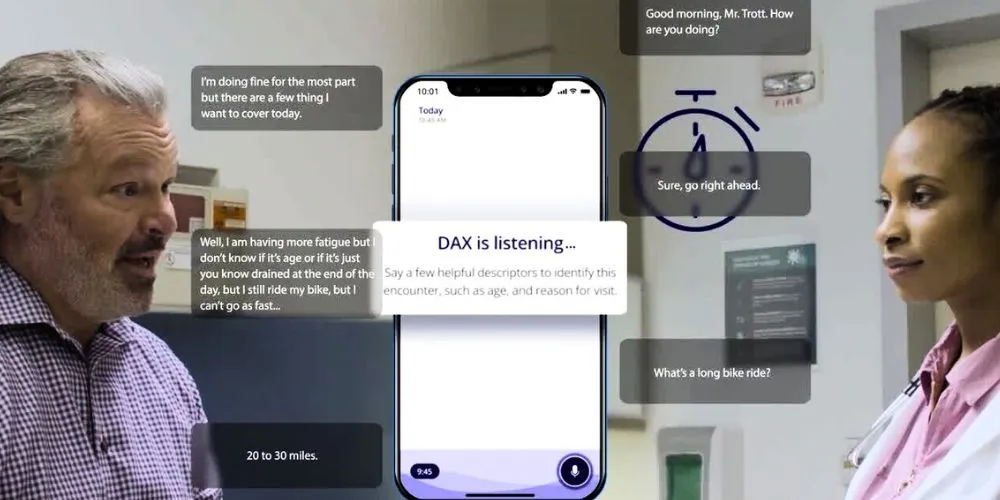Key Points:
- Ambient clinical documentation technology enables automatic transcription of patient visits through AI-powered conversation analysis.
- Companies like Microsoft’s Nuance, Abridge, and Suki are leading the development and adoption of ambient clinical documentation solutions.
- Nuance’s DAX Copilot has been widely embraced by healthcare organizations, with testimonials highlighting its efficacy in improving physician well-being.
- Continued innovation and expansion are expected in the ambient clinical documentation market, focusing on personalized care and improved efficiency.
Amidst the bustling atmosphere of the HIMSS conference in Orlando, Florida, groundbreaking technology is taking the spotlight: ambient clinical documentation. This innovative approach allows doctors to seamlessly record patient visits through face-to-face conversations, which are automatically transcribed into clinical notes using artificial intelligence (AI). Spearheaded by companies like Microsoft’s Nuance Communications, Abridge, and Suki, this technology alleviates physicians’ administrative burdens and prioritizes meaningful patient interactions.
Dr. Shiv Rao, CEO of Abridge, emphasized the transformative impact of this technology, enabling clinicians to focus on patients rather than paperwork. The pervasive administrative overload, leading to physician burnout, has prompted the healthcare industry to explore the potential of generative AI in streamlining documentation processes.
Nuance’s ambient clinical documentation tool, DAX Copilot, has over 200 organizations leveraging its capabilities. The technology saves physicians time and enhances their overall well-being, as evidenced by testimonials from healthcare professionals.
Stanford Health Care recently announced the deployment of DAX Copilot across its entire enterprise, with 96% of physicians finding it easy to use. Dr. Christopher Sharp, Stanford Health Care’s chief medical information officer, lauded the tool’s seamlessness and efficiency, noting areas for improvement in capturing patient nuances.
Integrating ambient clinical documentation tools directly into electronic health record (EHR) systems, such as Epic Systems’, further enhances workflow efficiency by eliminating the need for app switching. Seth Hain, Senior Vice President of R&D at Epic, highlighted the rapid adoption of ambient technologies within their software, signaling a paradigm shift in healthcare documentation practices.
Abridge and Suki are also making significant strides in the ambient clinical documentation market, with Abridge securing substantial funding rounds to fuel its expansion. Suki’s CEO, Punit Soni, expressed optimism about the technology’s potential to revolutionize healthcare, citing its ability to reduce physician documentation time by an average of 72%.
As ambient clinical documentation continues to gain momentum, fueled by physician burnout concerns and technological advancements, the future of healthcare documentation appears poised for transformation.





